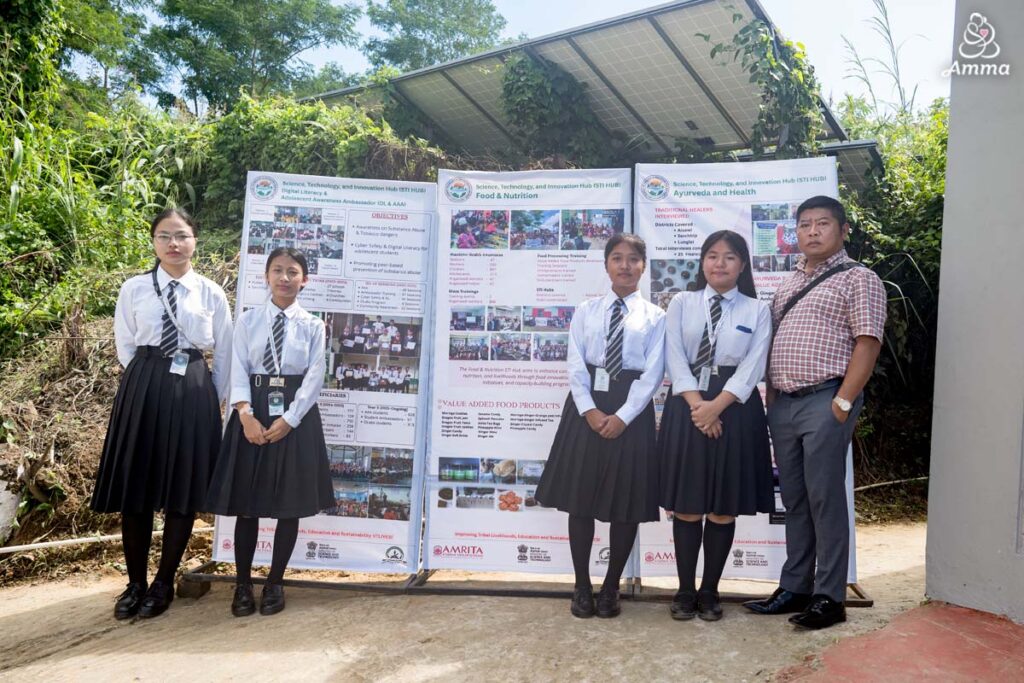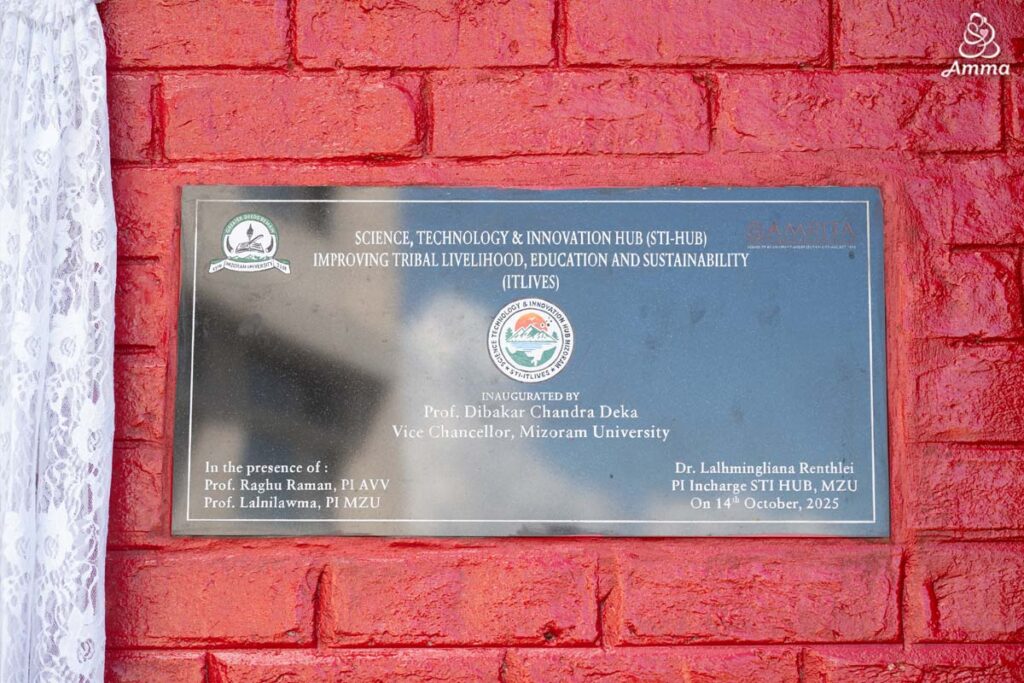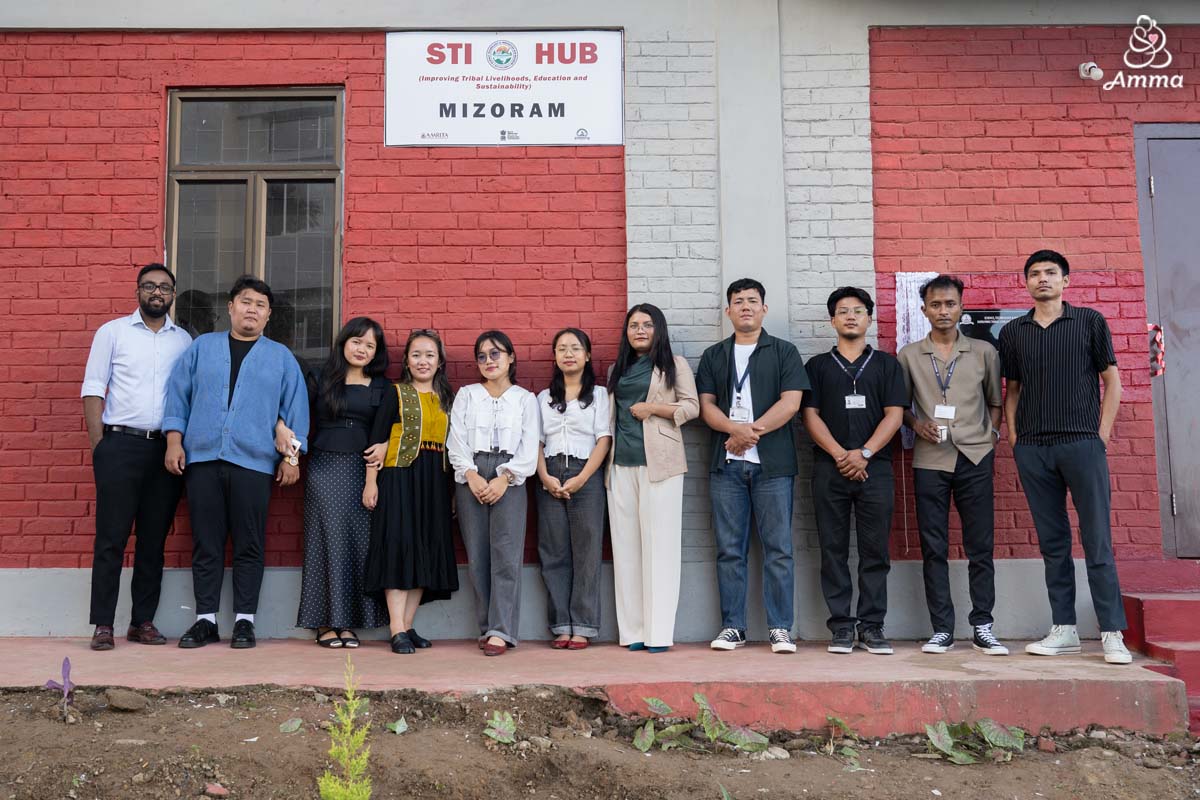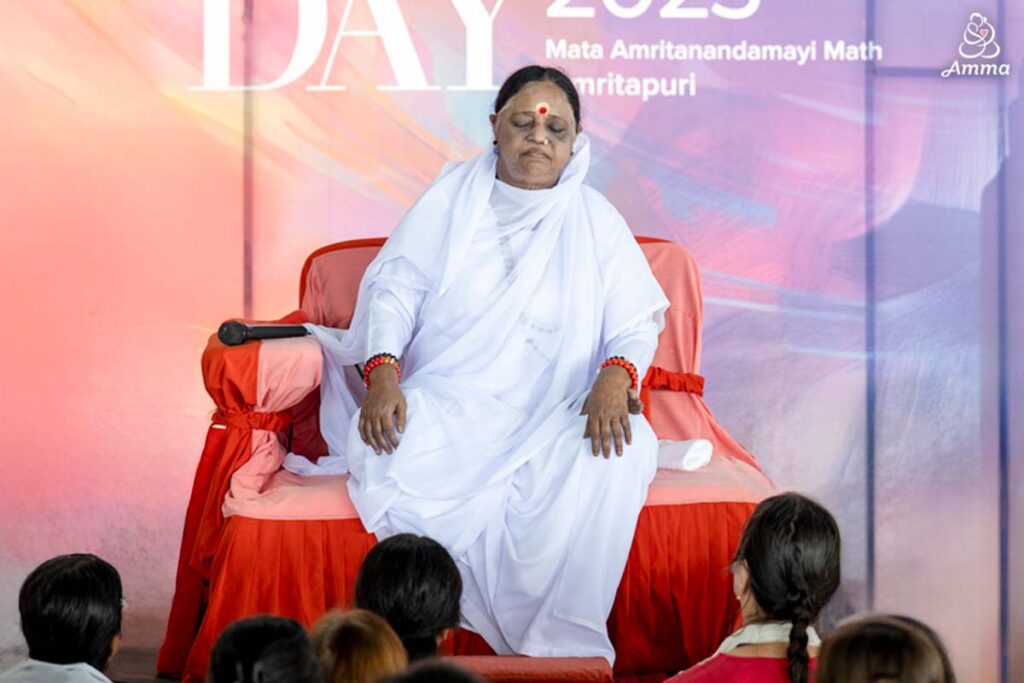With the opening of its new physical facility at Mizoram University, the STI Hub marks a major milestone in using research and empathy to uplift tribal communities across the state.
A new chapter has opened in Mizoram’s journey toward community-driven innovation. The newly inaugurated Science, Technology & Innovation (STI) Hub building at Mizoram University stands as a symbol of progress—where science meets compassion, and technology transforms lives.
Amrita University is in partnership with Mizoram University under the Department of Science and Technology (DST), Govt of India to uplift tribal communities in the state. Launched in 2023, the project has steadily evolved into a dynamic centre for research-based rural empowerment.
Constructed at a cost of ₹67.9 lakh ($77,300), the new STI Hub building is located at the Mizoram University Campus, Aizawl, and Kawlri Tlang, Serchhip. This dedicated physical infrastructure now marks the project’s most tangible milestone yet by offering a permanent home for laboratories, training spaces, and community innovation activities designed for Mizoram’s hilly terrain and rural needs.
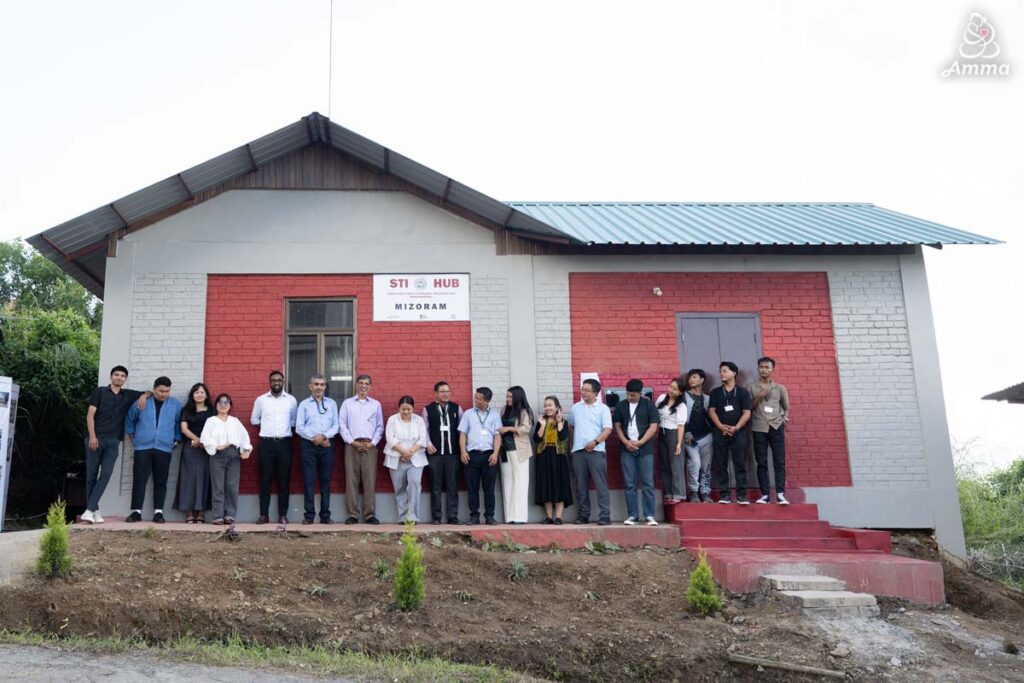
Today, the initiative has benefited more than 9,000 people across the state through programs in food processing, digital literacy, and health awareness. What makes this achievement remarkable is its reach among women and girls. Over 70% of beneficiaries are female, representing a quiet revolution in grassroots entrepreneurship and self-reliance.
Dr. Raghu Raman, Dean, Amrita School of Business, and Principal Investigator of the STI Hub project from Amrita University, said the new building reflects the university’s long-term commitment to the North-East.
“This is more than a building; it’s a bridge between science and society,” he said. “At Amrita, we believe technology must have a human heart. The Mizoram Hub has shown that compassion-driven research can create self-sustaining communities. From solar dryers to digital tools, we’re enabling people to innovate from within.”
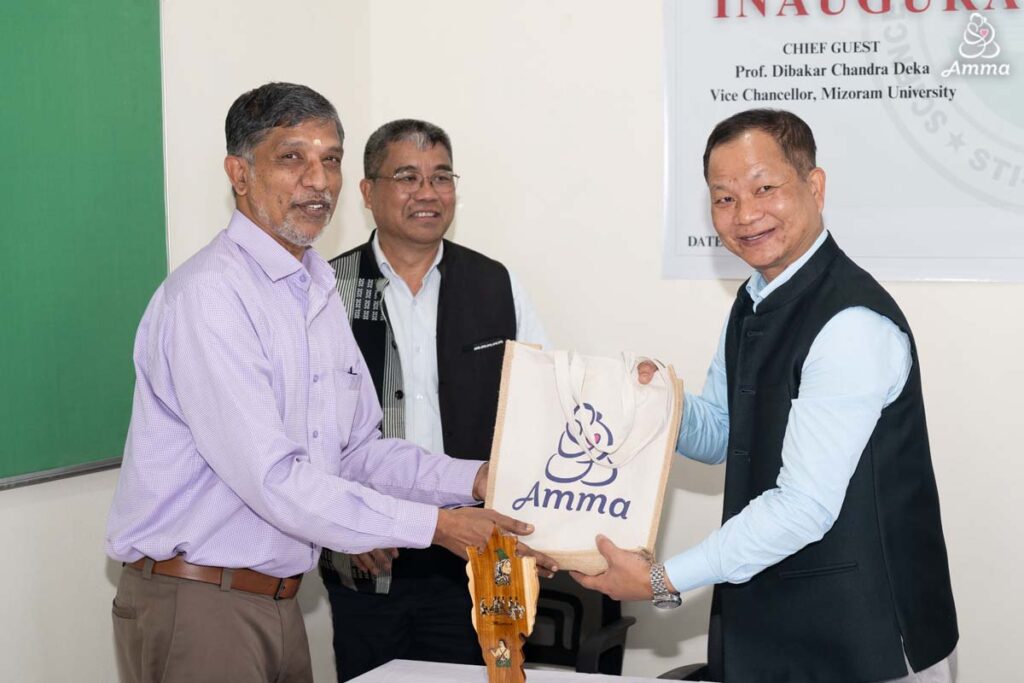
The Hub integrates expertise from Amrita’s Live-in-Labs® and AMMACHI Labs, bringing frugal, locally adapted technologies to tribal regions. This includes development of low-cost solar dryers for agricultural produce, eco-friendly bamboo craft machinery, and water-purification systems. These innovations are co-created with the community members, ensuring that solutions are relevant, replicable, and owned by the people themselves.
Dr. Lalnilawma, Minister for Rural Development & Administration, Government of Mizoram, and Principal Investigator from Mizoram University, called the Hub “a turning point for rural innovation.”
“Amrita’s collaboration has transformed our approach to community development,” he said. “This new facility will deepen our capacity to deliver science-based solutions that uplift rural families, enhance women’s participation, and sustain livelihoods for generations.”
The Hub also aligns with India’s ‘Vocal for Local’ vision and supports multiple UN Sustainable Development Goals 1, 2, 3, and 4—No Poverty, Zero Hunger, Good Health and Well-being, and Quality Education.
As the Amrita–Mizoram STI Hub embarks on its next phase from its new campus home, it stands as living proof that when science serves with empathy, even the most remote corners of India can become centres of innovation.
